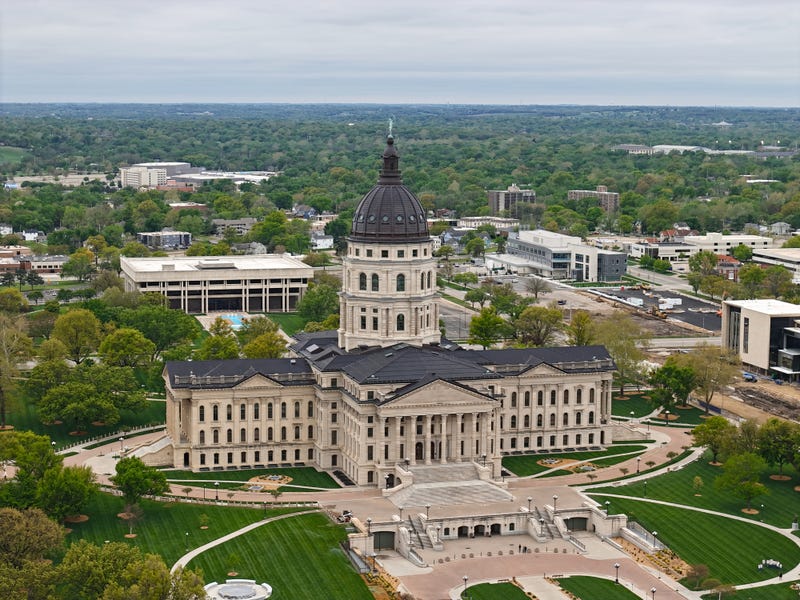
The top Republican in the Kansas House of Representatives has dropped efforts to force a redraw of U.S. House districts that would have thrust the state into a widening national battle for partisan advantage in the 2026 elections.
The announcement by House Speaker Dan Hawkins of Wichita ended a weeks-long push by GOP lawmakers to circumvent Democratic Gov. Laura Kelly, and call themselves into a special session on redistricting, which would have convened Friday.
A session would have targeted four-term U.S. Rep. Sharice Davids, the only Democrat in the state’s four-person House delegation in Congress.
Republicans still could draw a map designed to oust her after the GOP-supermajority Legislature convenes its next regular annual session in January. State Senate President Ty Masterson of Andover promised immediately after Hawkins' announcement that redistricting would be “a top priority” early next year.
Kansas Republicans were trying to answer President Donald Trump's call for states to redraw their maps to give the GOP more winnable seats ahead of the 2026 mid-terms so the party stands a better chance of keeping its slim House majority.
The Kansas constitution allowed Republicans to bypass Kelly’s refusal to call a special session by having two-thirds of the members of both chambers sign a petition. The GOP has the necessary supermajorities in both chambers, and enough GOP senators were on board, but a few House Republicans would not sign.
Some GOP critics opposed a mid-decade redistricting, while others feared that changes could make the three other Republican-held districts more competitive for Democrats.
“Planning a Special Session is always going to be an uphill battle with multiple agendas, scheduling conflicts and many unseen factors at play,” Hawkins said in a statement.
Davids conceded that the fight over a new Kansas map isn't over.
“We've won the first round in this fight against gerrymandering,” she said in a statement.
Kansas lawmakers haven’t done a mid-decade congressional redistricting since 1965, following federal court rulings requiring congressional and legislative districts to be as nearly equal in population as possible as a matter of fairness to all voters.
Most of Davids' district is in the Kansas City area, dominated by Johnson County, the state's most populous county. It's highly likely Republicans would have to split Johnson County between at least two districts to hurt Davids enough for her to lose in 2026 — and that could alienate voters there.
GOP lawmakers in Texas, Missouri, and North Carolina have heeded the president's call for new maps, creating seven additional Republican seats among them. California countered with an initiative on Tuesday's ballot to pick up five Democratic seats there.
In Kansas, it would have been only the second time in the state's 164-year history that lawmakers bypassed the governor for a special session. The only previous time was in 2021, when Republicans sought to challenge federal COVID-19 vaccine mandates. GOP leaders circulated this year's petition for weeks.
Hawkins' statement was titled, “Countdown to January 12th,” the date lawmakers open their next annual session. Hawkins said in his statement that most Republicans “wish to have a conversation about redistricting.”
GOP lawmakers would still have time to get a new map into law. The state's candidate filing deadline isn't until June 1, and the primary election is Aug. 4.
Davids has said she expects to challenge a new congressional map in court. She's also considering a run for the U.S. Senate next year against the incumbent Republican, Dr. Roger Marshall, if her district is redrawn.
